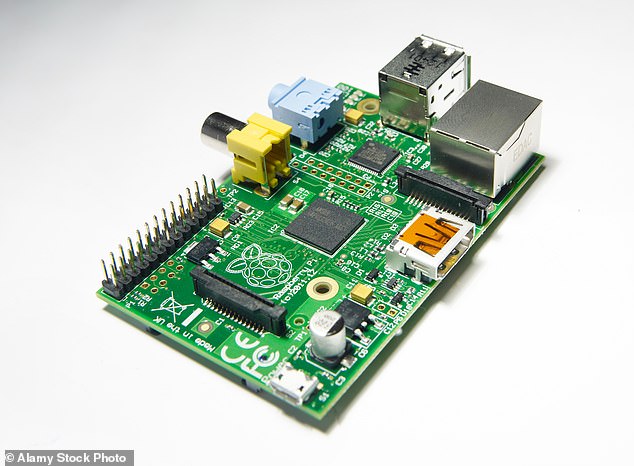MIDAS SPECIAL: Yes, the UK market is bursting back to life – and here are four stocks to prove it

Open your eyes, prick up your ears and take a deep breath. What do you sense? It’s something unusual, something that has been missing for too long – a whiff of excitement, growth, even exuberance.
After a slow and difficult hibernation, the UK market is coming back to life.
Yes, overseas predators are prowling these shores looking for bargains – just look at Czech billionaire Daniel Kretinsky’s bid for Royal Mail owner International Distribution Services. But UK plc is fighting back.
Eye-catching companies are floating on the stock market and, equally importantly, businesses are raising money through rights issues to fund future growth.
National Grid

Boost: National Grid’s call to arms is in a different league
National Grid is a case in point, with a £7billion cash-raising exercise, the largest since Lloyds Bank’s rescue deal in 2009.
National Grid’s call to arms is in a different league. Responsible for building and maintaining energy transmission networks here and in parts of America, the company is embarking on a bold £60billion investment plan.
Over the next five years, chief executive John Pettigrew intends to upgrade, extend and modernise National Grid’s network of pipes, cables and other infrastructure so that energy can be transmitted efficiently and effectively.
The proposals are ambitious but realistic, reflecting a shift in the energy mix towards wind, solar and nuclear power and growing demands on the electricity grid.
Projects are already under way and more will follow until 2029, creating more than 50,000 jobs.
But Pettigrew needs help, hence the £7billion rights issue, with shareholders being offered seven new shares for every 24 they already hold.
The new shares are on offer at £6.45 apiece, a 35 per cent discount to the price before the deal was announced and investors have until June 10 to subscribe.
With a history dating back to the privatisation of British Gas, National Grid has hundreds of thousands of individual investors. What should they do?
Rights issues are complicated and so few have been issued in recent years that even City experts barely remember how they work!
There are several options open to shareholders. First, they can take up all their rights. An investor with 500 shares would be entitled to 146 new shares, costing just over £941.
Second, they can ignore the whole process and will be compensated by National Grid for the rights they have forgone. Third, they can sell their rights online or via brokers or financial advisers. And finally, they can sell some of their rights and use the proceeds to invest in the rights issue itself.
MIDAS VERDICT: Those who would rather receive cash than spend it can easily choose to do so but they will be left with a smaller holding in National Grid, once the new shares have been issued.
Shareholders with cash, however, could gain from this deal, ending up with nearly 30 per cent more stock in a group with a decent track record, a strong growth agenda and attractive dividends.
Significantly, the rights issue has also been underwritten by bankers so National Grid will receive the money come what may, and can channel it into growth and jobs.
Great Portland Estates

Offer: Great Portland Estates is offering three new shares for every five held, at £2.30 a share
National Grid’s John Pettigrew is not the only boss who believes now is the time to issue new shares.
Toby Courtauld of property group Great Portland Estates is in the market, with a £350million, growth-focused rights issue.
The group is offering three new shares for every five held, at £2.30 a share, a 33 per cent discount to the price before the deal was announced.
Courtauld has been at the helm for more than 20 years and gained a reputation for timing the market, selling when valuations are high and buying when they are depressed.
He and his team have done very little buying since 2013 but they are convinced that the market is about to turn, making this the perfect time to snap up some bargains. Courtauld has a specific brief, however – top commercial properties in the heart of London.
Demand is growing, supply is tight and vacancy rates are virtually non-existent. This is where Courtauld is focusing his efforts, amassing a pipeline of 27 possible sites, with a total value of £1.3 billion.
MIDAS VERDICT: Like National Grid’s cash call, Great Portland’s rights issue is bold. Increasing the size of the company by more than 20 per cent, it is Courtauld’s first rights issue since 2009 and should be seen as a vote of confidence in the property market.
Big investors are supportive while Courtauld and his board are investing £2 million of their own money. Shareholders must consider whether they can afford the new stock. If they can, they should.
Special opportunities

Opportunity: Special Opportunities Reit is a new company floating on the stock market to exploit potentially lucrative property deals
One transaction might be considered eccentric. Two suggests a trend. While Great Portland is calling on existing shareholders for cash, Special Opportunities Reit is a new company floating on the stock market to exploit potentially lucrative property deals.
Seeking to raise up to £500million at £1 a share, the group is led by a group of seasoned property experts, who believe, like Courtauld, that the market is about to turn.
Management has form. Chairman Harry Hyman has spent the past 30 years running Primary Health Properties, taking it to a £1.2billion business with a long history of growth and generous dividends.
Chief executive is Simon Lee, who founded LXi Reit in 2017 and took the business from nothing to a £3.9billion merger with fellow property firm London Metric just three months ago.
Lee believes a flood of properties will come on sale in the next couple of years from pension schemes that are keen to exit the market.
The reasons are complex but they should mean that top-quality assets will be hitting the market at once-in-a-generation prices.
Lee has already lined up deals worth more than £2.5billion, from industrial estates to student digs to data centres. Plans are also afoot to drive rental growth by managing properties more actively.
Canny buying, clever management and timely sales are expected to deliver an attractive blend of share price growth and dividends. Lee and his team are targeting annual returns of 12 to 15 per cent from next year and are hoping for significantly more.
They also plan to wind the business up in five years, selling off assets for considerably more than they paid for them and returning cash to shareholders.
Such is Lee’s confidence in his strategy that he and fellow managers are putting £4million of their own cash into the flotation, taking below-average salaries and charging no fees for their work.
Instead, they are looking for lump-sum payments once the group is wound up, with payments triggered only after investors have received returns of at least 10 per cent per annum.
MIDAS VERDICT: Special Opportunities is one of the largest property flotations in years, a welcome boost for the market and a sign of optimism in the future.
The company has been set up to benefit from a particular time in the property cycle and so deliver generous returns to shareholders. At £1 a share, the flotation is worth a closer look.
Raspberry Pi

Global growth: Raspberry Pi has grown into a global success story
Raspberry Pi has not yet released details of its flotation but information is expected within days and this home-grown technology firm has already captured investors’ imaginations.
Founded by Cambridge PhD, Eben Upton, to make affordable computers for young people and enthuse them about computing, Raspberry Pi has grown into a global success story.
From initial trading in 2012, the group has sold more than 60 million low-cost computers and complementary kit around the world. Customers range from individuals to schools to multinational companies. Shareholders include Sony and semi-conductor group Arm.
Sales totalled almost $266million (£210million) in 2023 but Upton reckons the market for his products exceeds $21 billion.
Not only are Raspberry Pi computers popular and practical, they are cheaper to make and far more environmentally friendly than traditional desktop models, using 85 per cent less plastic and consuming 90 per cent less electricity.
That makes them attractive to schools and businesses alike. The group has doubled profits in the past three years and there are high hopes for the future.
Raspberry Pi is expected to be valued on the stock market at around £500million, with most of the new shares coming from the Raspberry Pi Foundation, a charitable trust that owns 75 per cent of the company and intends to use the money to promote computer skills among young people.
MIDAS VERDICT: Raspberry Pi shares could prove an exciting addition to investors’ portfolios. Well worth a look.
Fundraisings and flotations have been rare in recent years. Their return is a sign of recovery.
Time to recognise the value of UK businesses – and invest in firms that will deliver growth across the country.
Some links in this article may be affiliate links. If you click on them we may earn a small commission. That helps us fund This Is Money, and keep it free to use. We do not write articles to promote products. We do not allow any commercial relationship to affect our editorial independence.







